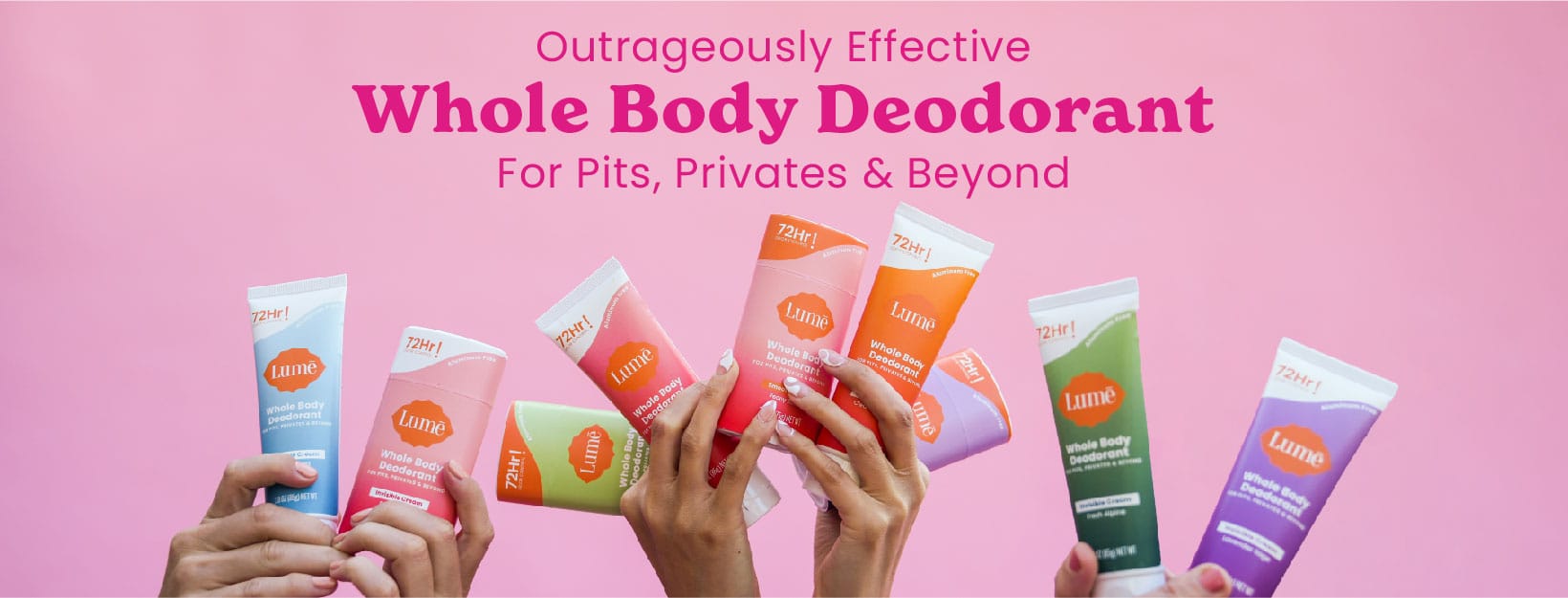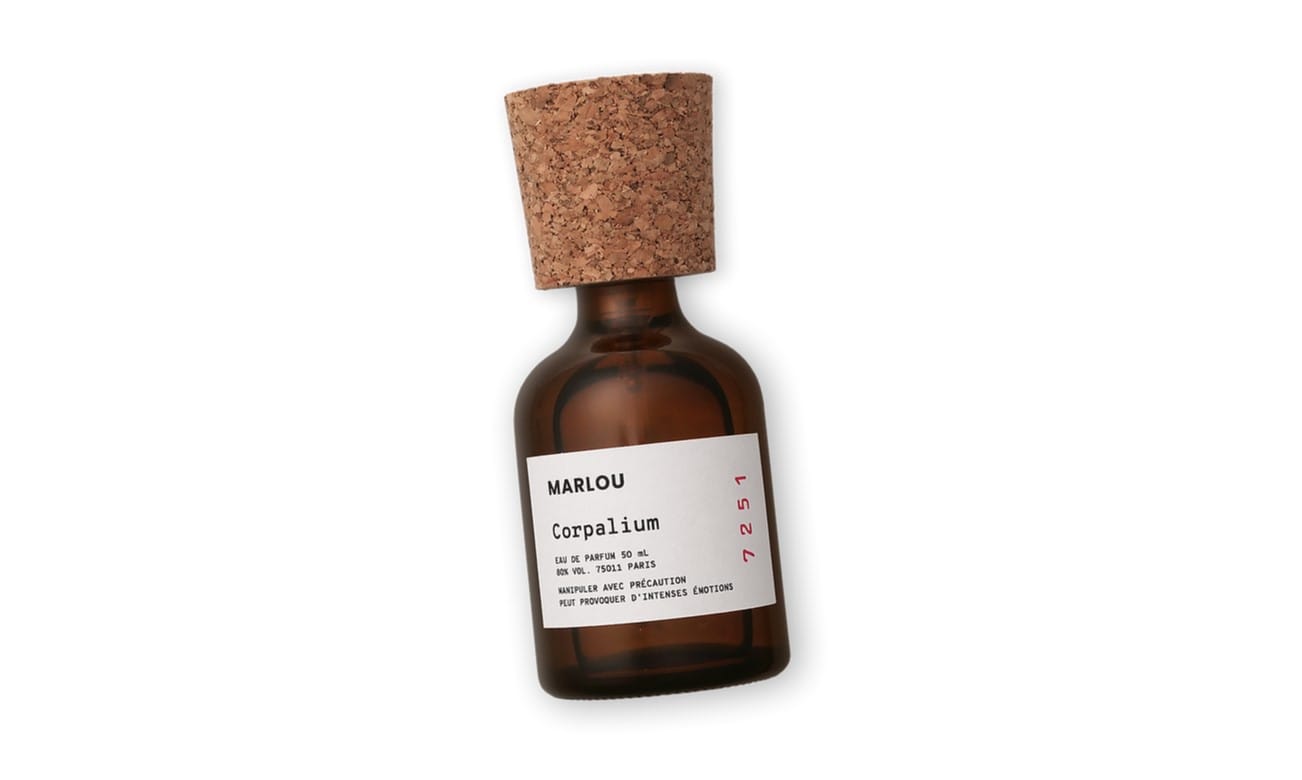Smells like clean spirit

Les points-clés en français au bas de l'article
"It's all over for full body odor. Experience all-day odor protection and sensitive skin care, everywhere – from pits and thighs to toes." This is the claim supporting Dove's new Whole Body Deo range, launched a few weeks ago in the US.
America's aversion to body odor is nothing new – the country accounts for the largest share of the deodorant market in the world – but it's taking on a new dimension with the introduction of full-body deodorants. According to Google Trends, search interest for the term increased by over 1,000% between March 2023 and March 2024.
Several brands have launched products promising "protection from pits, privates to feet" (Dove Men+Care's version). Lumé, for instance, which was launched in 2018 by a gynecologist, is "a clinically-proven, aluminum free deodorant for everyone's everything" that comes in various formats (cream, stick, wipes) and can be applied on underpits, underboobs, belly buttons, butt cheeks, "and more!" – anywhere, really.

Procter & Gamble's Secret, which has been around since the 1950s, launched a whole body range earlier this year, as also have Old Spice, Native and Ban.
Beyond safe (aluminum-free, paraben-free, baking soda-free), science-backed, dermatologist-approved formulae, what's noticeable in terms of messaging is the destigmatization of body odour. Brands combine an educational approach (bacteria as the root cause) with playful codes, bright packaging (Lumé and Ban) and a light, at times humorous tone that plays down what might be considered to be embarrassing.
From Ban's Instagram:
"Whole body deodorant who? Every BODY sweats🥵and every BODY stinks! But not every BODY part is the same! That's why BAN created a new line of TARGETED sweat & odor solutions for a NEW🤗way to combat all your sweaty, swampy, stinky, sticky 💦needs!"
As they normalize the fact that "body odour is normal", they also introduce the idea that it is something that can be taken care of, as exemplified by Ban's ambition: "introducing a new way to fight sweat and odor" with as many as 4 products for "Full body ban" (since "no two spots sweat just the same"), i.e. a classic roll-on deodorant for armpits but also a Thigh & Body Rub Remedy Anti-Friction Stick, an Underboob Sweat Shield Stay Dry Lotion and a Private Parts Stay Dry Deodorizing Lotion.

As Lumé's founder insists, brands like hers are "not shaming", they "have normalized the conversation around that topic and while it is normal, you don't have to live with it". Beyond odour and hygiene, what brands offer here is control: with extensive use of words like "protection", "freshness"and "odour control" of course, the focus really is on enhanced body management.
There has been a lot of press on the subject recently, with many articles questioning the relevance and validity of the whole concept by pointing out the fact that most body parts do not smell in the first place, potential harmful health effects and by suggesting companies are actually making up a problem so they can solve it.
A practical question is: will this new habit impact the way we use perfume? Unless unscented, full-body deodorants will probably get in the way of fragrances, resulting in olfactory interference – a subject which Cartier addressed with its Bases à Parfumer, launched earlier this year: neutral bases available in cream and oil forms that can be perfumed and allow the perfume to fully express itself.
Another, deeper question is: if this new segment takes off, will there still be room for personal, organic thus unique smells?
It's interesting to note that, as this need for total body odour control grows, another (admittedly smaller) phenomenon is emerging: the rise of polarizing fragrances, i.e. perfumes that are not chosen for their "nice" smell but for their singularity and ability to make a personality stand out from the crowd (#I smell unusual).
"Although the mainstream perfume business has long run on seduction, celebrity and the idea that a person must have a signature scent, a burgeoning countermovement, driven by independent artisans, is questioning the idea that a perfume’s central function is to delight the noses of others. A growing market of fragrance fans is more interested in smelling peculiar than pleasant."
NY Times
Brands explore and combine unexpected notes like latex, bubble gum, blood but also bodily odors. Marlou, whose approach is reminiscent of Etat Libre d'Orange's famous Sécrétions Magnifiques, works "with notes described as animal. In their proximity to the natural odours of the skin, these beckon towards an intimacy, a primal bond with oneself and with others." The exact opposite of the whole body deodorant wave, we might add.

The spectrum is getting wider, ranging from control and eradication (the notion of "banning") of all body odour to the preservation and celebration of individual, natural skin smells, with a multiplicity of geocultural nuances and variations in between. This would be an engaging research topic!
Anyone interested, please feel free to get in touch 😉
-----------------------------------------
En français :
- Aux USA, une nouvelle catégorie est en plein boum : celle des déodorants intégraux – avec un nombre de recherches sur le net multiplié par + de 1000% selon Google Trends, dans un pays qui est déjà le plus gros consommateur de déodorants au monde
- Dove s'est récemment lancé, à la suite d'acteurs comme Lumé ("le déodorant pour toutes les parties de tout le monde"), Secret, Old Spice, Native ou Ban. Avec un point commun dans la communication de toutes ces marques : la volonté de déstigmatiser les odeurs corporelles, notamment à travers un ton léger, parfois humoristique destiné à dédramatiser la question (tout le monde transpire, et alors ?)
- Le déodorant intégral, dont la validité a été remise en question par de nombreux spécialistes et articles de presse, pose d'autres questions :
- cette nouvelle habitude va-t-elle interférer avec la manière dont nous nous parfumons actuellement ?
- va-t-elle laisser une place à l'odeur corporelle naturelle de chacun ?
- Un autre phénomène intéressant à noter parallèlement à cette volonté de contrôle total de l'odeur corporelle : la croissance de parfums iconoclastes, choisis non pour leur odeur agréable mais pour leur singularité et la capacité donnée à ceux qui les portent de s'affirmer #JeNeSensPasCommeToutLeMonde